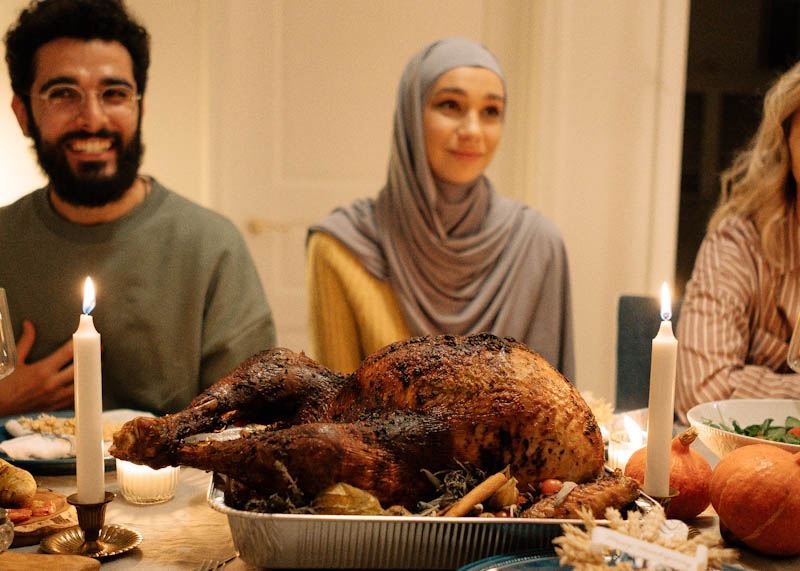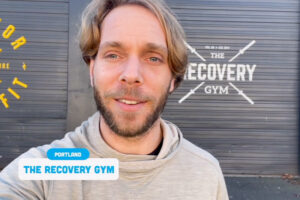Get Yourself an Attitude of Gratitude. You’ll Appreciate It
Hopelessness is a trap of addiction. Learning and practicing gratitude in recovery is one way out. Here's how

Sometimes things are going haywire, and it’s hard to stay positive. Sometimes things are going pretty great, and it’s still hard to stay positive. Recovery, as they say, is simple but not easy. (Sometimes it’s not even that simple.)
We all — in recovery or not — need help from time to time when it comes to maintaining a balanced and empowered mindset. But if you can work toward that, recovery may come just a little bit easier.
Throughout this journey, you’ll learn various tips and methods you can use toward that end in the long term; these healthy coping mechanisms can provide a secure foundation on which to build your sober life.
One such tactic that can be incorporated into any daily routine is the practice of gratitude. It’s pretty simple, pretty easy, and many find it to be a game-changer.
Gratitude Supports Mental Health in Recovery, But How?
Research has shown that people who recognize the positives in their lives and show appreciation for these meaningful things are happier overall.
Start by thinking of five things you’re grateful for. Heck, start with one if you need to. You may be grateful for your family, friends or sobriety. You may be grateful that you wrote two emails today. You may be grateful that you thought you ran out of toothpaste, but actually there was a little more in there.
The point is, this shift in focus will subtly but surely help you cultivate healthier and happier feelings and experiences going forward.
Practicing gratitude brings us to a place of appreciating the good that we do have, encouraging us to share this goodness with others. This creates a cycle of more reasons to be appreciative and gracious in other areas of our lives.
Here’s where it really helps: When you choose to be thankful, to be graceful and to take the long view, during the tough times, the weight is less likely to bear down on you. When you actively choose to be grateful, your general outlook on life will shift — you’ll feel happier, but also more resilient.
How Am I Supposed To ‘Practice’ Gratitude?
As you may know, gratitude doesn’t always just happen, even at times you have a suspicion that it should, and that’s normal.
But there are many ways to tune up an active, intentional and ultimately successful gratitude practice that is unique and meaningful to you. Develop a system that makes the most sense to you. It won’t feel corny or insincere if it’s your system.
Where to start? Here are some ideas (we’ll expand on them, don’t worry):
- Start and end your days with your gratitude practice
- Write a list of at least five things you are appreciative of
- Plan a regular meeting with a loved one or friend to share your gratitude
- Meditate or pray
- Create a “gratitude board”
- Create a gratitude song to remind you of this perspective
- Post online (ahem, about things you appreciate)
- Do something completely different that’s unique to you
The most straightforward intentional practice of gratitude is starting and ending each day with a mental or written list of things you’re grateful for. In doing this, you begin to recognize and keep track of the things that bring you good feelings. Shifting your overall focus toward the things that make you feel good increases the experiences of positivity in your life.
Writing out the things you’re grateful for helps you visualize and thoughtfully process these feelings. A written gratitude practice gets the gears turning toward more experiences that inspire gratitude.
Share Your Gratitude With Your Family and Pals
You can also share your gratitude with loved ones and friends, making it a communal experience. Adding an element of connection and healthy bonding further deepens the benefits of your gratitude practice.
If you’re exploring spirituality, praying or meditating regularly is another form of expressing gratitude. Prayer and meditation, of course, also help deepen an overall sense of spiritual well-being, which could be another important aspect of your recovery journey.
Create a Vision Board
Create a vision board of the things you’re thankful for! Why not? This way, you can glance at your creation and remind yourself of what brings you joy and gratitude.
Write a Song!
Another fun way to practice being thankful is to write a song, or even just find one that instills a sense of appreciation. Recovery doesn’t have to be dead-serious all the time, and plenty of people in active addiction lose touch with what “fun” even means. A fun lil song can encourage you to maintain your commitment and cultivate a more positive outlook.
Start a Blog and Post About It
You may find it, well, gratifying, to post about your appreciation online. Public posts of appreciation can encourage others to like or comment — or even take up their own gratitude practices.
Or perhaps, come up with some other method that’s totally different and unique to you. The most important part of practicing and reflecting on gratitude is finding something you can implement with consistency and joy.
As simple as it seems, creating a gratitude practice can go a long way. Making a habit of expressing and sitting with an attitude of thankfulness each day helps pave the way to longer-lasting well-being and a stronger sense of peace.
Become a Positive Example
This may not sound at all like the old you, but you just might become a positive example to others by sharing your gratitude with the world around you. It tends to have a ripple effect that naturally translates into intentional and regular acts of kindness, from you and all around you.
In addiction and even in recovery, it can be hard to see beauty and hope. Gratitude helps remind us that these things are there, and they are real. Increasing your awareness of the positive brings more balance to your perspective and peace to your life. When you catch that feeling, hold on to it.
More Lifestyle
The Joy of Baking (Sober)
Two months sober, Annie Zimmerman decided to make cookies. Now, her hobby turned passion yields fulfillment, connection and delicious soberversary cakes. Read the interview!
Sure-Bet Sober Date Ideas
Ready to get back out there? Sober dating isn't so hard. But here are a few pointers anyway, to help you find your groove.
Now Elite NFL Players, They First Tackled Addiction | News Roundup
All Sober compiles the best of the latest headlines. Here's your addiction and recovery news for the week of Feb. 19, 2024!
All Sober in Chicago
A great town for recovery, come sun, rain or snow! Check out our video guide to the Windy City's best sober options for bars, bottle shops — and even an arcade with vintage games.
All Sober in New York
The Big Apple truly has it all — including a sober bar with a "witchy vibe" and an array of enchanting non-alc cocktails. Take a peek in our video guide to the sober city!
All Sober in Portland
Oregon's cultural capital may be weird and proud, but it's sober and proud too! We scoped out the coolest sober-friendly spots in our new video guide.
Running Toward Recovery
Seeking purpose in early recovery, Annie Zimmerman rekindled an old fire with distance running — and found it carried her through some of her toughest trials in sober life.
Delicious Nonalcoholic Drinks Recipes for a Classy (or Cozy) Winter's Eve
Mixology stars Derek Brown and John deBary have refined the art of sober-friendly, zero-proof concoctions for grown-ups. They shared some favorite recipes for the season with All Sober.










